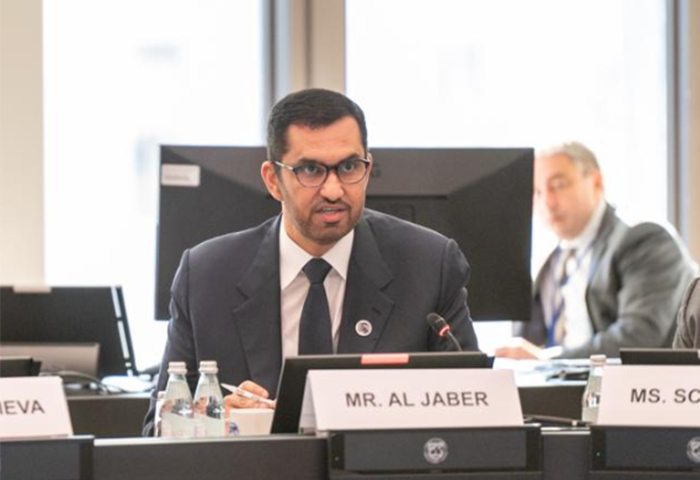
At a panel discussion organized by the Rockefeller Foundation on the sidelines of the World Bank/IMF Spring Meetings, Dr. Sultan bin Ahmed Al Jaber, Minister of Industry and Advanced Technology and COP28 President-designate, emphasized the need to reform international financial institutions and partner with private sector leaders to unlock trillions of dollars in climate finance to enable climate action.
Responding to a question on the reform of International Financial Institutions and Multilateral Development Banks, Dr. Al Jaber underscored the need to increase the affordability, availability and accessibility of climate finance to accelerate climate action and a just energy transition: “While the world united in Paris around the goal of stopping global temperatures from rising 1.5 degrees above pre-industrial levels, our actions have not kept pace with our commitments. We have just seven years left to catch up. That’s a small window to make a massive course correction. A key factor for success is capital and finance. But not enough is getting to the people and places that need it most.”
Dr. Al Jaber noted that climate finance is essential for each workstream of the Paris Agreement, from mitigation to adaptation, and that these resources are particularly needed in the Global South, which has historically received an insufficient share of available resources.
“The world needs to triple the amount of money that is available for clean tech investment, adaptation finance and a just energy transition in emerging and developing countries. Only twenty percent of clean tech investments went to developing economies that make up over 70 percent of the global population. And the least developed countries receive less than 2 cents on every dollar spent.”
The COP28 leadership team, including the President-designate, has been on a global listening tour to gather input and chart an inclusive path forward. Dr. Al Jaber emphasized that climate finance arose time and again throughout these discussions.
“What I hear over and over again is the fact that climate finance is nowhere near available, affordable or accessible enough. In terms of availability, we need to turn billions into trillions. When it comes to affordability, we need to deploy climate finance without burying the developing world in more debt. And on accessibility, we need to remove the bureaucratic hurdles that keep recipient countries waiting way too long to access the funds they desperately need.
“We need fundamental reform of IFIs and MDBs to achieve both climate and development goals,” Al Jaber stressed.